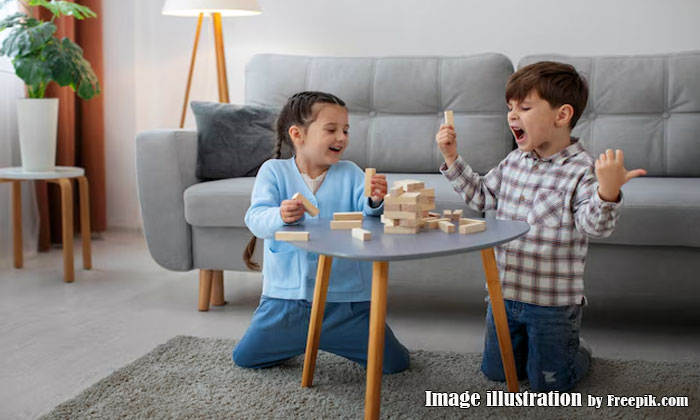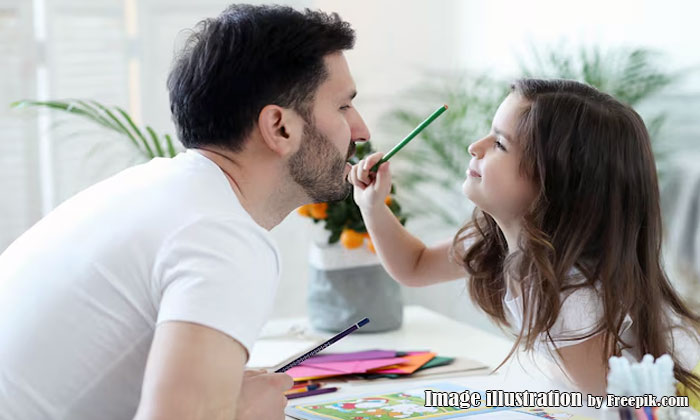
Play is often seen as just a fun way for children to pass the time, but its role in child development goes far beyond entertainment. It is a critical part of a child’s growth, contributing to cognitive, physical, social, and emotional development. Play allows children to explore, experiment, learn, and engage with the world around them in a way that is both natural and enjoyable. In this article, we will explore why play is so important in child development and how it benefits children at various stages of their lives.
1. Cognitive Development
One of the most significant benefits of play is its positive impact on cognitive development. Through play, children develop essential skills that are foundational to learning and problem-solving.
- Language Skills: Play, especially pretend play, encourages children to use and develop language. When they engage in role-playing activities, they learn new words, practice grammar, and develop communication skills by interacting with others or narrating their imaginative scenarios.
- Problem-Solving and Critical Thinking: Play often involves trial and error, which helps children develop problem-solving skills. Whether they are figuring out how to stack blocks, navigate a maze, or work out a conflict with a friend, children learn how to think critically and make decisions based on their observations and experiences.
- Creativity and Imagination: Unstructured play, such as drawing, building with Legos, or creating imaginary worlds, encourages creativity. Children learn to think outside the box, experiment with different ideas, and express themselves in unique ways.
2. Physical Development
Physical play, particularly outdoor activities, is vital for a child’s physical growth and health. Play helps children develop their gross and fine motor skills, which are essential for day-to-day tasks and overall physical well-being.
- Gross Motor Skills: Activities like running, jumping, climbing, and playing sports strengthen large muscle groups, improve coordination, and build overall fitness. These activities also improve balance and spatial awareness.
- Fine Motor Skills: Smaller, more focused activities—such as drawing, building with small blocks, or cutting with scissors—help children refine their fine motor skills. These skills are necessary for tasks like writing, buttoning shirts, or using utensils.
- Health Benefits: Physical play promotes healthy habits, including exercise, outdoor time, and better sleep. Regular physical activity helps children build a foundation for a healthy lifestyle.
3. Social Development
Social play is crucial for learning how to interact with others. It helps children develop social skills, empathy, and emotional intelligence, all of which are key components of healthy relationships.
- Sharing and Cooperation: When children play with others, they learn how to share toys, take turns, and collaborate on activities. Cooperative play helps children understand the importance of teamwork and the benefits of working with others to achieve a common goal.
- Conflict Resolution: Play often involves disagreements, which provide opportunities for children to practice conflict resolution skills. They learn how to negotiate, compromise, and express their feelings appropriately.
- Building Friendships: Through social play, children learn how to make and maintain friendships. They practice skills like initiating conversations, making group decisions, and respecting others’ boundaries.
- Empathy: Pretend play, where children take on different roles, helps them understand and empathize with other people’s emotions and perspectives. This kind of play can deepen their emotional intelligence and teach them how to show compassion.
4. Emotional Development
Play provides children with a safe space to explore and express their emotions. It helps them manage stress, understand their feelings, and develop emotional resilience.
- Emotional Expression: In play, children are free to express a wide range of emotions, from joy to frustration to sadness. Through pretend play, children can process complex emotions and experiences in a way that feels comfortable and non-threatening.
- Stress Relief: Play offers an outlet for children to relieve stress and cope with difficult feelings. Active play, such as running around or playing a game, can help reduce anxiety and release pent-up energy in a positive way.
- Building Resilience: Play allows children to experience both success and failure, which is essential for building emotional resilience. When a child loses a game or faces a challenge in play, they learn how to handle disappointment and try again.
- Self-Regulation: Through play, children also develop the ability to manage their emotions and behaviors. For instance, when children take turns or follow the rules in a game, they practice impulse control and self-discipline.
Also read other parenting articles on Destyless:
- Positive Discipline Strategies That Really Work
- How to Foster Emotional Intelligence in Children
- 10 Essential Parenting Tips for Raising Happy Kids
5. Development of Executive Functioning Skills
Executive function refers to a set of cognitive skills that help children plan, focus, and manage their actions. These skills are essential for success in school and life. Play, especially structured play, plays a significant role in the development of these skills.
- Planning and Organization: Games that involve rules, roles, or specific goals help children practice planning and organizing. They learn how to strategize, follow a sequence of steps, and make decisions to reach a desired outcome.
- Attention and Focus: Play requires children to focus their attention on tasks and follow through with activities. Whether it’s focusing on building a structure or concentrating on a game, children develop their ability to stay on task and complete activities.
- Memory and Cognitive Flexibility: Games that require children to remember instructions, track scores, or change strategies foster cognitive flexibility and working memory, both of which are crucial for learning and adapting to new situations.
6. Play as a Tool for Learning
Play is not only fun but also an effective tool for learning. Educational play activities help children absorb and retain knowledge in an enjoyable and engaging way.
- Learning through Play: Activities like puzzles, board games, or educational toys can introduce children to important concepts such as numbers, letters, colors, shapes, and patterns. These activities promote cognitive skills while also being entertaining.
- Hands-On Learning: Children learn best when they can touch, explore, and experiment. Play provides them with the opportunity to learn through hands-on experience, which is more engaging and impactful than passive forms of learning.
- Developing a Love for Learning: By integrating learning into play, children develop a positive association with education. They are more likely to develop a lifelong love of learning and feel motivated to explore new ideas and subjects.
7. The Role of Play in Early Childhood Education
Play-based learning is a cornerstone of many early childhood education programs because of its numerous benefits. In these settings, play helps children meet developmental milestones and prepares them for formal schooling.
- School Readiness: Play helps children develop the social and cognitive skills needed for school, such as listening, following directions, cooperating with others, and resolving conflicts. These skills are just as important as academic abilities.
- Encouraging Exploration: Play allows children to explore different subjects, ideas, and activities. In a classroom setting, this encourages curiosity and helps children develop their interests and passions.
Conclusion
Play is a crucial part of a child’s development. It is not merely an enjoyable pastime; it is an essential vehicle for growth across all areas of development, including cognitive, physical, social, emotional, and executive functioning skills. Through play, children develop the foundation they need to become well-rounded, resilient, and capable individuals. As parents, caregivers, and educators, it is important to recognize the value of play and create opportunities for children to engage in meaningful and varied play experiences. The benefits of play last a lifetime, contributing to better learning, stronger relationships, and improved well-being throughout life.






